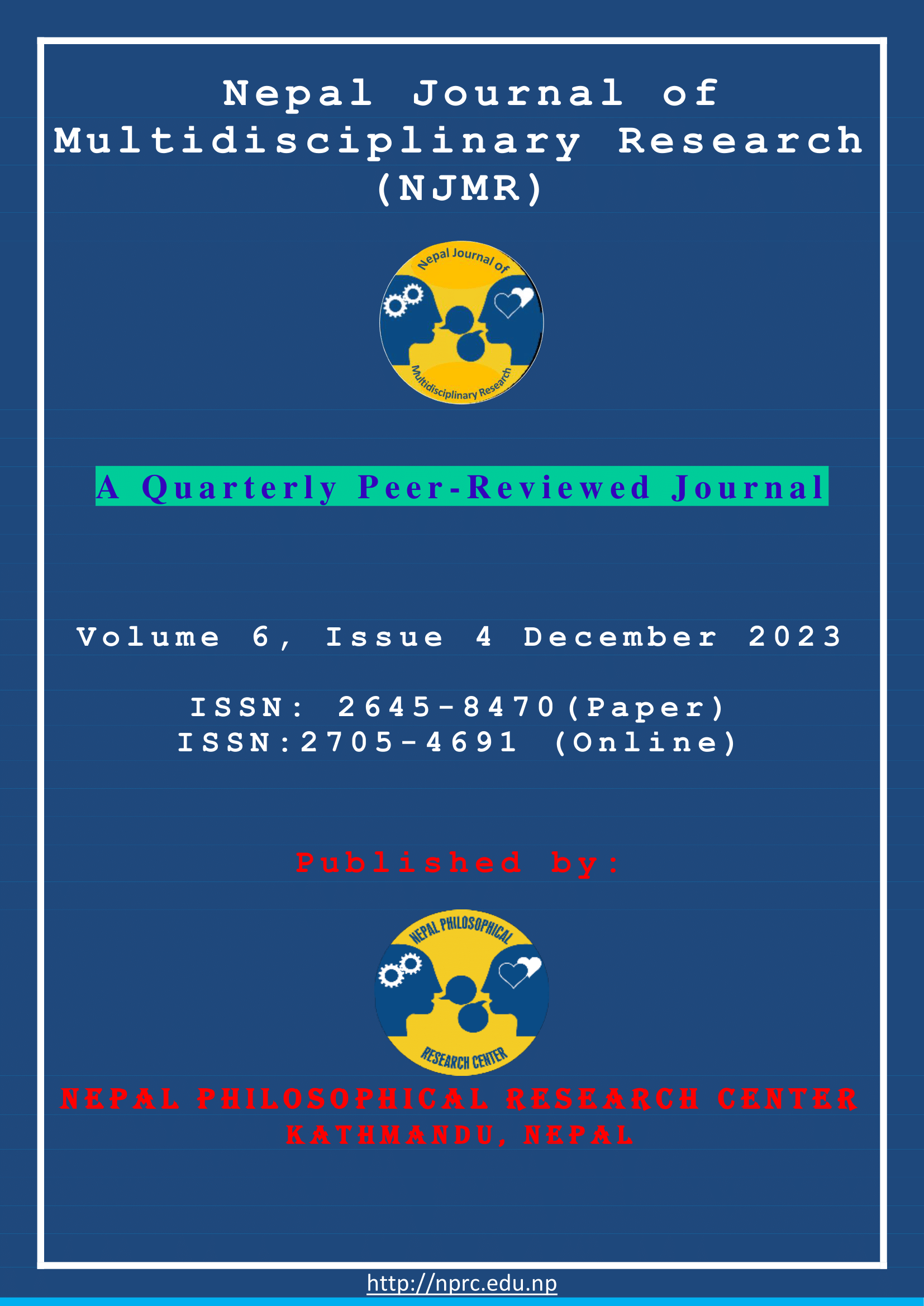Does the Staff Bonus Fund Decrease the Net Profit? Empirical Insights from Nepalese Commercial Banks
DOI:
https://doi.org/10.3126/njmr.v6i4.61991Keywords:
Remuneration, return on assets, non-performing loans, panel data, expenses preference hypothesisAbstract
This study investigates the impact of staff bonus funds, return on assets (ROA), and non-performing loans (NPLs) on Nepalese commercial banks' net profit. It also compares the individual effects of independent variables on the net profit of commercial banks. The unbalanced panel data of 11 commercial banks were gathered from various central bank reports and economic surveys of Nepal. It employs a descriptive and exploratory research design. To investigate the relationship between dependent and independent variables, statistical and econometric tools such as summary statistics, association analysis, Johnsen- Fisher and Kao co-integration test, Hausman, Breusch-Pagan, Chow test, and standardized panel fully modified ordinary least square (PFMOLS) are used. Non-performing loans hurt the calculation of net profit. The net profit of Nepal's commercial banks drops by 0.323 units for every one percent increase in non-performing loans. Similarly, a 0.234 unit increase in Nepalese commercial banks' net profit is linked to every unit increase in return on assets. The staff bonus fund is more responsible for increasing commercial banks' net profit than return on assets. This study assists policymakers in determining that employee bonuses are not only an expense but also a profit-generating tool for motivating and attracting skilled individuals. It contributes to developing appropriate strategies to reduce non-performing loans and boost the ROA of Nepalese commercial banks.
Downloads
Downloads
Published
How to Cite
Issue
Section
License

This work is licensed under a Creative Commons Attribution-NonCommercial 4.0 International License.
This license enables reusers to distribute, remix, adapt, and build upon the material in any medium or format for noncommercial purposes only, and only so long as attribution is given to the creator.




